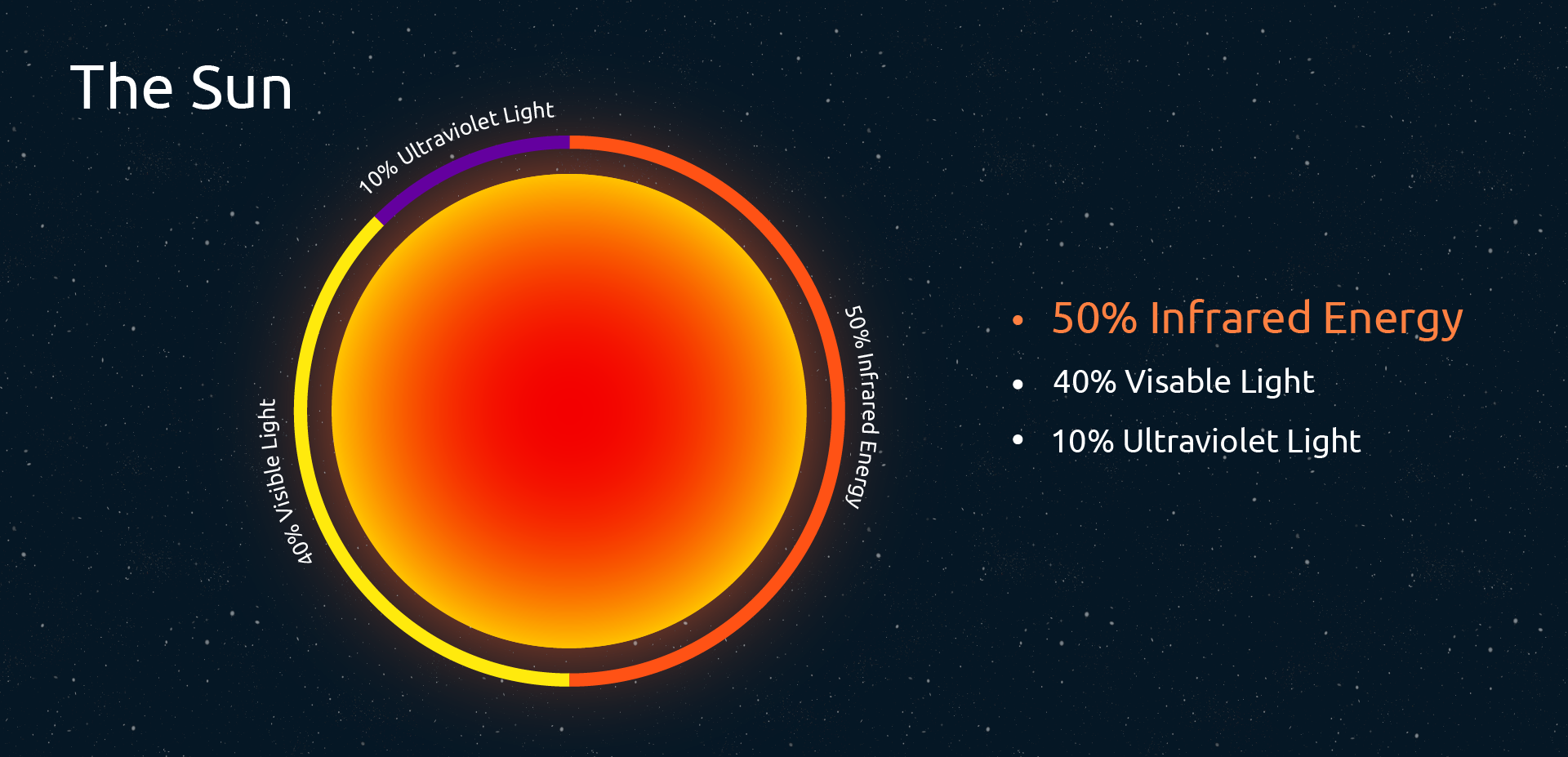The main thing that differentiates our heating panels from normal convection heaters is the fact that they use infrared rays to provide warmth.
This one feature is pretty much solely responsible for all the benefits of using IR panels – but what is infrared?
We’re going to look at the basic physical properties, which will help you understand the fundamental principles.
What Are The Basics Of Infrared
Infrared is a type of electromagnetic radiation. This is basically energy that travels through waves at the speed of light (186,000 miles per second), as opposed to particles that move around.
Different points on this spectrum have different uses and effects. For example, x-rays are used for medical CT scans, whilst radio waves can be used for communication and broadcasts.
Infrared exists as invisible radiant energy – we feel it as heat. Below is a chart that details the said spectrum.
|
Name |
Wavelength |
|
Gamma rays |
< 0.01 nm |
|
X-rays |
0.01 nm – 10 nm |
|
Ultraviolet rays |
10 nm – 400 nm |
|
Visible light |
400 nm – 700 nm |
|
Infrared rays |
700 nm – 1 mm |
|
Microwaves |
1 mm – 1 m |
|
Radio waves |
1 m – 100,000 km |
As you can see, it is right next to visible light, the only difference being that the wavelength is longer – the space between each ‘peak’ in the wave is longer.

This was discovered by Sir William Herschel in 1800, via a simple experiment that even you can recreate using a light, a prism and a thermometer.
He shone a light through a prism, splitting the light into its component parts – red, orange, yellow, green, blue, indigo and violet. He measured the temperature of each colour, but found that the temperature continued to rise, even in the dark part.
He concluded that there must be waves there that are invisible, which is what we know today as infrared.
Is Infrared Radiation Safe?
Absolutely. Don’t be alarmed by the word radiation. If all radiation was bad for us, then life on Earth would be impossible.
Incidentally, life would probably not exist without infrared radiation – as it is the same type of heat emitted by the sun. Just over 50% of the total energy emitted by the sun is infrared heat, with the rest made up of approximately 40% visible light and 10% ultraviolet light, though our panels do not emit visible light or UV light.

This means that our infrared heaters are not just safe, they’re also natural too.
How Does It Work?
The way infrared works is simple in theory, and in practice. All objects emit and absorb infrared radiation. The more infrared emitted, the hotter the object is.
These waves bounce around and hit objects. These objects absorb the waves, and emit them back out, repeating the process, until all the energy in the waves have been exhausted.
This is how our panels work – they emit infrared waves, and as they hit you, you feel the heat and emit it back out. The sensation is similar to stepping out from the shade into the sunlight, and you feel the sun’s rays hitting your skin.
This is much better for you, as it’s a much drier heat that doesn’t transfer moisture, and doesn’t circulate dust and mites, not to mention cheaper to run as you’re heating objects rather than volume of air.
If you would like to know more about infrared, our Surya IR system panels, or anything else then please get in touch with our team. Give us a call on 0116 321 4124, or send us an email to sales@suryaheating.co.uk.
You can also keep up to date with us on social media, by liking us on Facebook and following us on Twitter.





